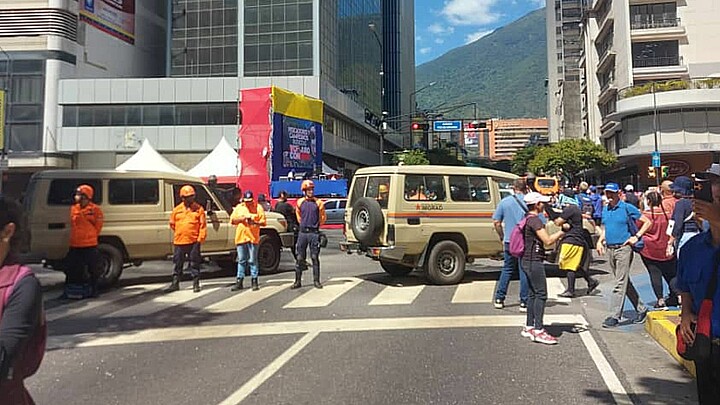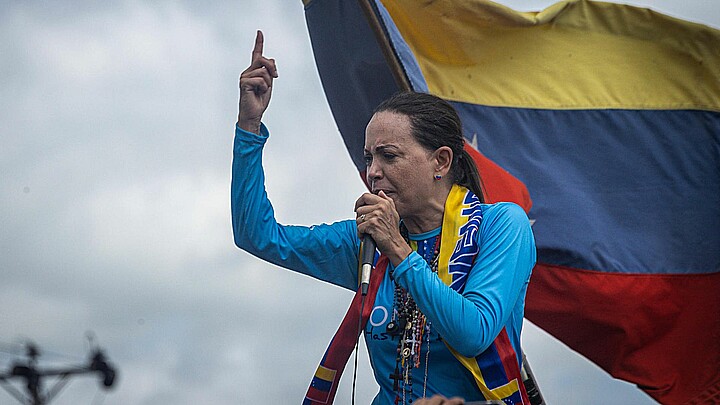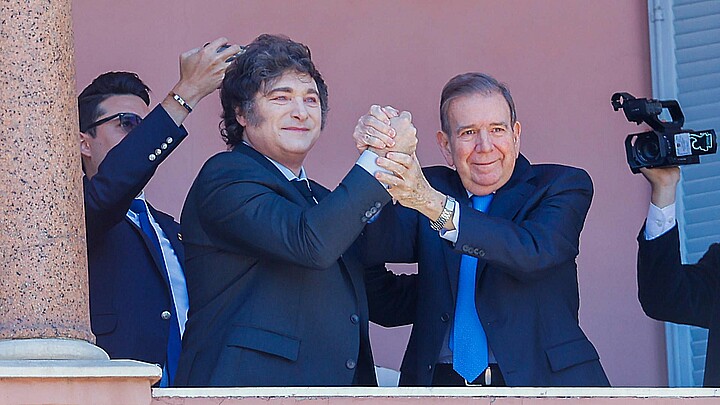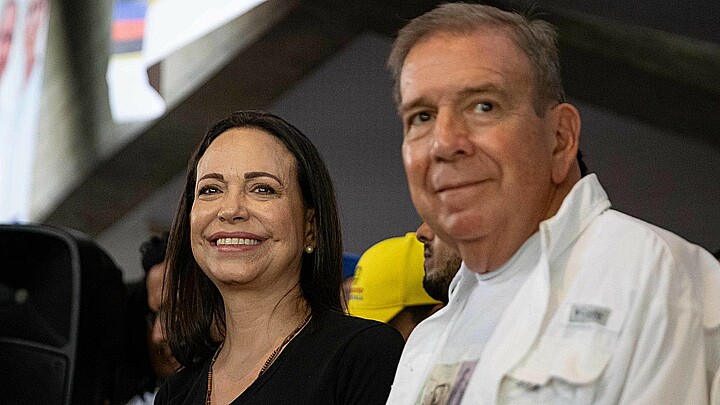Politics
Iran provided Venezuela with UAVs capable of reaching Miami
The Iranian Supreme Leader Ayatollah Khamenei considers Nicolas Maduro’s regime in Venezuela to be a key ally because it is both anti-American and strategically located
December 30, 2021 4:59pm
Updated: December 31, 2021 3:25pm
A new report from the Israeli Alma Center found that Iranian-made unmanned aerial vehicles (UAVs) are now stationed in Venezuela – approximately 2,000 kilometers “from skyscrapers in Miami.”
Maj. Tal Beeri, head of the research department at the defense watchdog located in northern Israel, said the new report shows that Iran's "UAV army" is comprised of “thousands of unmanned systems, which are designed to gather intelligence, and to strike surface or air targets, either by launching missiles and bombs, or conducting a suicide explosive attack by diving into the target.”
Iran has unveiled multiple UAVs in recent years with ranges of upwards of 1,500 miles.
The Iranian Supreme Leader Ayatollah Khamenei considers Nicolas Maduro’s regime in Venezuela to be a key ally because it is both anti-American and strategically located. Tehran appears to believe that placing military assets so close to American soil could contribute to its deterrence posture against Washington, helping the U.S. to “think twice” before taking military action against Iran.
“Ultimately, the Iranians have marked out Venezuela as a potential base for some sort of activity against the U.S. in the future,” Beeri noted. “Even if they do not actually act from it, in Iran’s strategic view, merely having a presence there is a threat to the U.S.”
Venezuela, however, also benefits from the relationship by receiving military capabilities from Iran. It also swaps its heavy oil for Iranian condensate oil, which Venezuela can use to “improve the quality of its tar-like crude [oil],” Reuters reported.
“The Venezuelan regime, like Iran, is isolated. They share common interests and foster ties. Iran has clear economic and military interests in the country, and it is exploiting Venezuela’s weakness,” Beeri noted.
But Venezuela’s fostering of relationships with nations hostile to the United States is not new.
In 2010, foreign policy circles in Washington began warning against a new threat for the region: a looming VIRUS (Venezuela, Iran and Russia) coalition that could, in theory, bring nuclear weapons to the United States’ backyard.
Robert Morgenthau, the then-Manhattan District Attorney, first sounded the alarm bells in a Wall Street Journal op-ed, claiming that “two of the world’s most dangerous regimes… will be acting together in our backyard on the development of nuclear and missile technology.”
Similarly, Peter Brookes, former deputy assistant defense secretary for Asian and Pacific Affairs under President George W. Bush, voiced his concerns in a New York Post op-ed, writing:
“Some experts fear Caracas and Tehran may already have some small-scale nuclear projects underway. Plus, the two regimes are reportedly working on the mapping and mining of Venezuela’s uranium deposits, possibly the world’s largest. This would certainly benefit Iran, whose nuke program is laboring under punitive sanctions that are meant to inhibit access to supporting materials and technology. Clearly, getting its hands on uranium won’t be a problem for Caracas. … Down the road, the concern is that Iran will also share with Venezuela the military dimensions of its nuclear program, such as ballistic-missile and nuke-warhead systems and technology.”
Although fears of nuclear cooperation between Venezuela, Russia and Iran have since been dispelled, military, economic and political cooperation between the three regimes has continued to be a concern for Washington.
In recent years, Russia has sold advanced weapons to Caracas and even sent troops and two Tu-160 bombers – capable of carrying nuclear weapons – to support Maduro’s regime.
Similarly, Iran has provided economic and military aid to Venezuela – while also helping Caracas form Popular Mobilization Units (PMUs), a complex aggregation of militias which have historically helped Iran project influence in Iraq and Syria.










